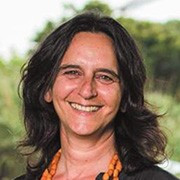Kronfeld-Schor, N. and Dayan, T. 2003. Partitioning of time as an ecological resource. Annual reviews of Ecology Evolution and Systematics 44:461–80 2013.
Cohen R, and Kronfeld-Schor N. Individual variability and photic entrainment of circadian rhythms in golden spiny mice. Physiology & Behavior. 87: 563-574. 2006.
Roll U, Dayan T and Kronfeld-Schor N. On the role of phylogeny in determining activity patterns of rodents. Evolutionary Ecology. 20: 479-90. 2006.
Einat H, Kronfeld-Schor N, and Eilam D. Sand rats see the light: Short photoperiod induces a depression - like response in a diurnal rodent. Behavioral Brain Research. 173:153-7. 2006.
Gutman R, Yosha D, Choshniak I, and Kronfeld-Schor N. Two strategies for coping with food shortage in desert golden spiny mice. Physiology & Behavior. 90: 95-102. 2007.
Levy O, Dayan T, and Kronfeld-Schor, N. The relationship between the golden spiny mouse circadian system and its diurnal activity: An experimental field enclosures and laboratory study. Chronobiology International 24:599-613. 2007.
Gutman, R, Hacmon-Keren R, Choshniak I, and Kronfeld-Schor N. Effect of food availability and leptin on the physiology and hypothalamic gene expression of the golden spiny mouse: a desert rodent that does not hoard food. American Journal of Physiology. 295: R2015-23. 2008.
Kronfeld-Schor N. and Dayan T. Activity patterns of rodents: the physiological ecology of biological rhythms. Biological Rhythms Research. 39:193-211. 2008.
Ashkenazy T, Einat H, and Kronfeld-Schor N. We are in the dark here: induction of depression- and anxiety-like behaviors in the diurnal fat sand rat, by short daylight or melatonin injections. International Journal of Neuropsychopharmacology. 12:83-93. 2008.
Cohen R, Smale L, and Kronfeld-Schor N. Plasticity in rhythms in general activity and body temperature in golden spiny mice. Chronobiology International. 26:430-446. 2009.
Ashkenazy T, Einat H, Kronfeld-Schor N. Effects of bright light treatment on depression- and anxiety-like behaviors of diurnal rodents maintained on a short daylight schedule. Behavioral Brain Research. 201:343-6. 2009.
Flaisher-Grinberg S, Kronfeld-Schor N and Einat H. Models of mania: from facets to domains and from animal models to model animals. Journal of Psychopharmacology. 24: 437-8. 2010.
Cohen, R., Smale, L., Kronfeld-Schor, N. Masking and temporal niche switches in spiny mice. Journal of Biological Rhythms 25:47-52. 2010.
Cohen R, Kronfeld-Schor N, Ramanathan C, Baumgras A, and Smale L. The suprachiasmatic nucleus of Acomys Russatus and Acomys cahirinus, nocturnal and diurnal congeners. Brain, Behavior and Evolution. 75:9-22. 2010.
Rotics S, Dayan T, and Kronfeld-Schor N. The effect of artificial night lighting on temporally partitioned spiny mice. Journal of Mammalogy, 92(1):159-68. 2011.
Levy, O., Dayan, T., and Kronfeld-Schor, N. Adaptive thermoregulation in golden spiny mice: The influence of season and food availability on body temperature. Physiological and Biochemical Zoology 84:175-84. 2011.
Rotics, S., Dayan, T., and Kronfeld-Schor, N. Light masking in the field: An experiment with nocturnal and diurnal spiny mice under semi-natural field conditions. Chronobiology International 28:70-5, 2011.
Krivisky, K., Ashkenazy, T., Kronfeld-Schor, N., and Einat, H. Antidepressants reverse short photoperiod-induced forced swim test depression-like behavior in the diurnal fat sand rat: further support for the utilization of diurnal rodents for modeling affective disorders. Neuropsychobiology, 63:191-6. 2011.
Levy, O., Dayan, T., and Kronfeld-Schor, N. Interspecific competition and torpor in golden spiny mice: Two sides of the energy acquisition coin. Integrative and Comparative Biology 51 (3): 441-8. 2011.
Gutman, R., Dayan, T., Levy, O., Schubert, I. and Kronfeld-Schor, N. The effect of the lunar cycle on fecal cortisol metabolite levels and foraging ecology of nocturnally and diurnally active spiny mice. PLoS ONE 6(8): e23446. doi:10.1371/journal.pone.0023446. 2011.
Hut R.A. Kronfeld-Schor N, Van der Vinne V, De la Iglesia H. In Search of a Temporal Niche: Environmental Factors. Progress in Brain Research. 199:281-304. 2012.
Krivisky K, Einat H, and Kronfeld-Schor N. Effects of morning compared with evening bright light administration to ameliorated short-photoperiod induced depression- and anxiety-like behaviors in a diurnal rodent model. Journal of Neural Transmission. 119:1241-8. 2012.
Levy O, Dayan T, Rotics S,and Kronfeld-Schor, N. Foraging hierarchy, energy intake, and torpor: An individual-based field study of energy balancing in desert golden spiny mice. Ecology letters 15:1240-48. 2012.
Kronfeld-Schor N, and Einat H. Circadian rhythms and depression: Human Psychopathology and Animal Models. Neuropharmacology 62:101-14. 2012.
Levin E, Yom-Tov Y, Hefetz A, and Kronfeld-Schor N. Changes in diet, body mass and fatty acids composition during pre-hibernation in a subtropical bat with relation to NPY and AgRP expression. Journal of Comparative Physiology B 183:157-66. 2013.
Kronfeld-Schor N, and Dayan T. Thermal ecology, environments, communities, and global change: Energy intake and expenditure in endotherms. Annual reviews of Ecology Evolution and Systematics 44:461–80. 2013.
Kronfeld-Schor N, Dominoni D, De la Iglesia H, Levy O, Herzog E.D, Dayan T, Helfrich-Forster C. Chronobiology by moonlight. Proceedings of the Royal Society of London B. 280(1765):20123088. doi: 10.1098/rspb.2012.3088. 2013.
Kronfeld-Schor N, Bloch G, Schwartz W.J. Animal Clocks: When Science meets Nature. Proceedings of the Royal Society of London B. 10.1098/rspb.2013.1354. 2013.
Bilu C, and Kronfeld-Schor N. Effect of circadian phase and melatonin injection on anxiety-like behavior in nocturnal and diurnal rodents. Chronobiology International 30(6):828-36. 2013.
Barak O, and Kronfeld-Schor N. Activity rhythms and masking response in the diurnal fat sand rat under laboratory conditions. Chronobiology International 30(9):1123-34. 2013. (I.F. 2.878, Q1, times cited:1).
Kronfeld-Schor N. Conservation physiology: A new challenge for thermal biologists. Temperature 1: 1–2. 2014.
Levin E, Plotnik B, Amichai A, Braulke L.J, Landau S, Yom-Tov Y, and Kronfeld-Schor N. Subtropical mouse-tailed bats use geothermally- heated caves for winter hibernation. Proceedings of the Royal Society of London B. DOI: 10.1098/rspb.2014.2781 2015.



